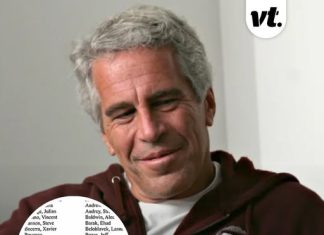Logan Paul recently revisited one of the most damaging moments of his career the infamous incident that took place during his 2017 trip to Japan. The topic resurfaced during a podcast appearance, prompting him to reflect once again on the choices that sparked global outrage. Even years later, the event remains a significant reminder of the weight public figures carry and the consequences of ignoring that responsibility.
What Happened in Aokigahara
During that trip, Logan visited Aokigahara, a forest known for its tragic association with suicide. While there, he filmed the body of an individual who had passed away. Instead of responding with respect, he recorded the moment up close and made light-hearted remarks that were deeply inappropriate. He later uploaded the footage to his YouTube channel, sparking immediate backlash. His actions were widely condemned for being insensitive and reckless.

His Attempt at an Apology
Following the outrage, Logan issued an apology, saying he had made “a severe lapse in judgment” and regretted his behavior. He acknowledged that he should have stopped filming and shown empathy rather than using the scene for content. While his apology was widely circulated, many questioned whether he genuinely understood the harm he caused or whether the statement was simply an attempt to contain the damage to his career.
Addressing the Situation on a Podcast
In a recent podcast conversation, Logan opened up about the incident again. He clarified that he is not banned from Japan, despite ongoing rumors, but added that he would only return if he felt the country wanted him back. He admitted that he “messed it all up” and expressed how much he adored Tokyo, describing it as one of the most beautiful and energetic places he had ever visited. He shared that he still feels ashamed that his actions overshadowed the positive experiences he had there.
Calling the Incident a “Blessing”
One of the most surprising moments in the discussion came when Logan referred to the controversy as a “blessing.” He explained that the backlash forced him to confront his own immaturity and contributed to personal growth. According to him, the experience changed the direction of his life, pushing him to become more responsible. This statement, however, raised questions — can a harmful mistake be reframed as a positive turning point without minimizing the damage it caused?
The Debate Around Redemption
Logan’s reflection sparked conversations about the ethics of redemption. Many people believe that personal growth should not overshadow the seriousness of the original wrongdoing. His attempt to balance regret with gratitude for the lesson raises complex questions: How much can someone lean on “growth” to explain harmful actions? And does fame make it easier for public figures to turn their lowest moments into narratives of transformation?
Responsibility in the Public Eye
The controversy serves as a powerful lesson about the influence influencers have. When someone reaches a massive audience, their actions — intentionally or not — can shape cultural conversations and public attitudes. Logan’s scandal shows that fame comes with a responsibility to handle sensitive topics with care, especially issues involving mental health and suicide, which require compassion and understanding.

Looking Ahead
Today, Logan claims he continues to reflect on the incident. He says he wants to prove, through consistent behavior, that he has changed. Whether the public accepts this transformation is another question. Growth must be demonstrated, not declared, and true accountability comes from long-term actions, not just words.
Final Reflection
Logan Paul’s Japan controversy remains one of the defining moments of his career. His recent comments highlight the complicated balance between remorse, personal development, and public perception. While lessons can be learned, they do not erase the past — and the impact of this incident continues to shape how he is remembered and how he moves forward.

















